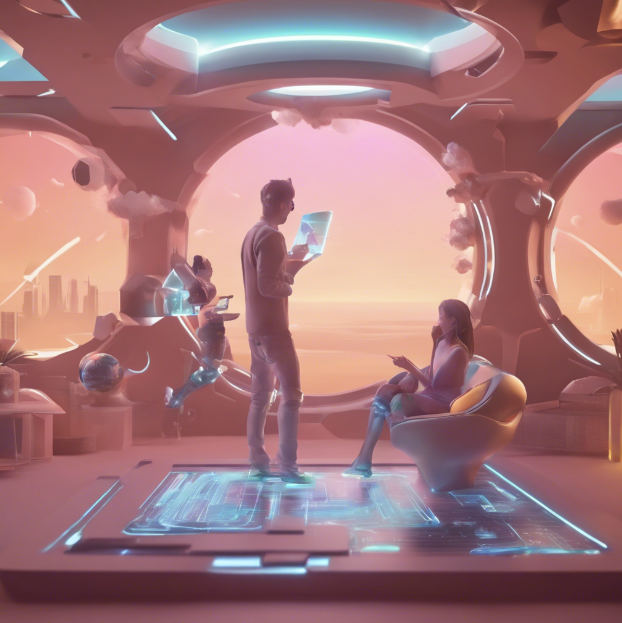Metaverse: a new dimension for human development
- Carlos Bassan

- 5 jun 2023
- 2 Min. de lectura
Actualizado: 12 ago 2024
"See, the world is full of things more powerful than us. But if you know how to catch a
ride, you can go places".
—Neal Stephenson, 1992.
In the last two decades, technological development has taken important steps touching every fragment of human becoming. The appearance of the first version of the Virtual Reality Modeling Language (VRML) in 1994 has caused a paradigm shift in the face of the evolution of technology, making the construction of diverse virtual realities possible, which have resulted in an immaterial universe whose borders we cannot yet visualized. The metaverse, as Neal Stephenson called it in Snow Crash, presents us with an endless range of possibilities for development as individuals and civilized society.
Throughout human history, there have been amazing discoveries and inventions that have changed the way we see the world and the way we live in it. It is our responsibility to make good use of the tools we have developed, because it depends on this decision that the metaverse can be an instrument to improve life or, on the contrary, be a weapon to destroy it or generate great damage in it. The metaverse, viewed favourably, is a wonderful and multifaceted creation, which should be the starting point for innovation in all possible areas of human development. With all the benefits offered by the metaverse, risks also appear, such as new ways to produce cyberattacks (such as ransomware), or the theft of personal data (spoofing).
Undoubtedly, the use of the metaverse for human development, through its use for education, represents a golden opportunity as well as an enormous challenge. A world without borders, applied to education, suggests the possibility of freeing creativity to implement new ways of teaching, while providing a space for education cooperation without ties. This vast array of opportunities presents challenges for educators and students, the first one: the transformation of learning processes and education models.
Carlos Bassan

.png)





Comentarios